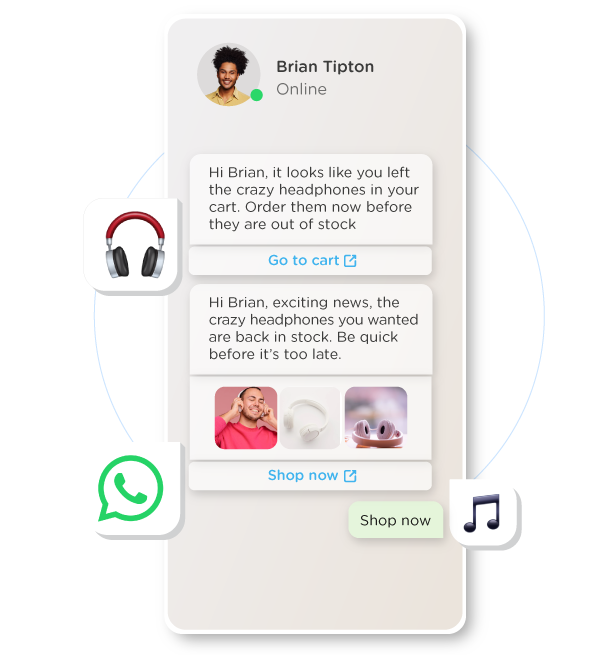- Add WhatsApp to Your Online Business Channels
- Letting Your Customers Know When Things Are Back in Stock
- Helping Your Customers With Their Online Wishlist
In many cases, an overly complex checkout page or a technical error with the payment system drives us to make the decision to put the brakes on a purchase. In fact, more than 80% of shoppers surveyed in 2020 abandoned their cart because of site issues such as form fill errors, transaction failures, or a time-consuming checkout process. Every day, abandoned carts account for a huge amount of revenue loss for online retail businesses across the world, yet it's a problem that often goes overlooked.
The good news is that by using WhatsApp Business to send out timely, automated messages to your customers, you can be well on your way to finding a solution to the issue of abandoned carts.
Add WhatsApp to Your Online Business Channels
41 different studies have found that the global average cart abandonment rate is just under 70 percent, making them a constant headache for online retail businesses across the world. The question is, how do we mitigate these potential losses? Well, with around 320 million messages being sent daily, sending abandoned cart reminders via email is one solution.
However, while email continues to be one of the most profitable channels for almost any eCommerce business, using it to send out reminders can sometimes be a bit problematic, given that their open rates hover around 21%.
By contrast, WhatsApp's open rate is a whopping 98%, meaning that out of every 100 messages sent, 98 messages are read. Recent statistics show that two billion people across the globe use WhatsApp on a monthly basis, making it one of the most widely used mobile messenger apps in the world.
Remember, in many cases, it may look like the customer has had second thoughts about your product when in fact he or she is still well in the purchasing zone. With its automated, timely, yet friendly reminder system, your WhatsApp Business platform provides that person with a necessary push in the right direction; allowing you to rescue those sales that all too often slip away at the very last moment.
Letting Your Customers Know When Things Are Back in Stock
We all know that running out of stock from time to time is part of life in eCommerce. Anything from an unexpected increase in product demand to the odd miscalculation at the time of ordering, to extraordinary events like the 2022 global supply chain crisis can cause any business to be caught short. However, this is no reason to let sales from potential customers who have shown an interest in your brand get away from you.
Back-in-stock notifications let people know that an out-of-stock product they recently liked the look of is once again available. When used well, this can be a fantastic tool for getting customers to return and complete the purchase they intended to carry out. The problem is that back-in-stock emails are often overlooked, left unopened, and can even be sent directly to the spam folder.
For an eCommerce business, one big advantage of WhatsApp over email - at least for the time being - is the very welcome lack of a spam folder. This means there's only the slimmest of chances that your message will be unopened or unread. You can also use pictures and video messages to easily grab their attention and immediately jog their memory about the specific product they wanted.

Helping Your Customers With Their Online Wishlist
Has your customer shown considerable interest in a certain product without placing an order? One of the most popular and effective ways to re-engage users with products they've liked the look of in the past is to create and promote customer wishlists. You can use WhatsApp to remind consumers of the existence of their wishlist, where they're just one step away from rediscovering all the products from your website that have previously caught their attention.
So, instead of relying solely on email in a desperate attempt to claw these losses back from the brink, WhatsApp Business offers you a far more common-sense conversion optimization technique that meets consumers where they are. CM.com can help you build your eCommerce messaging system around the needs of those who make your business tick, allowing you to ditch the emails and take your online brand to the next level.
